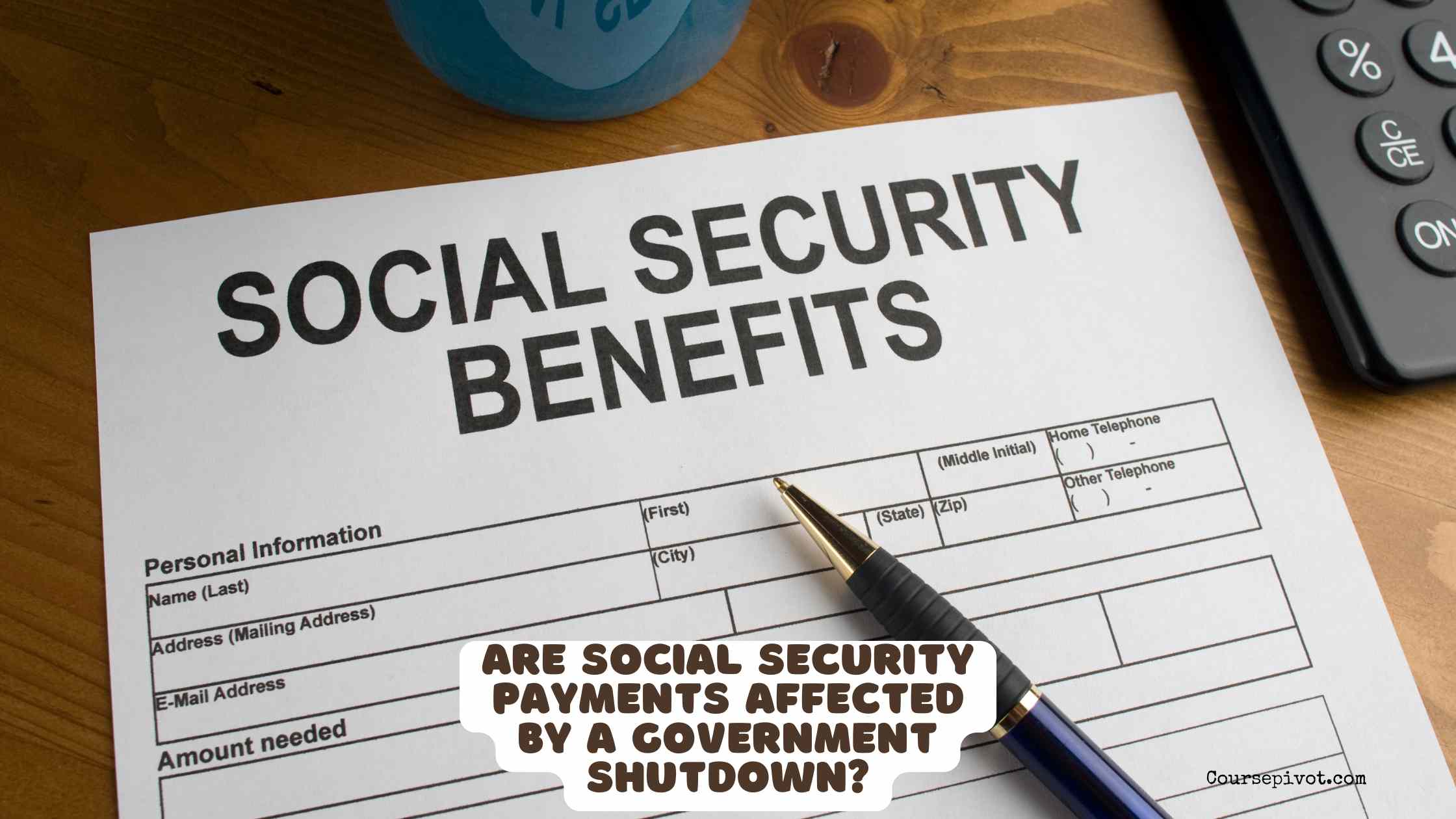
Are Social Security Payments Affected by a Government Shutdown?
Government shutdowns—those tense standoffs over federal funding—can disrupt everything from national parks to federal employee paychecks. But for the millions relying on Social Security, the big question is: Are Social Security payments affected by a government shutdown? The short answer is no. social security payments will continue despite potential government shutdown. As of October 2025, Social Security benefits, including retirement, disability, and Supplemental Security Income (SSI), continue uninterrupted during a shutdown.
Table of Contents
The article dives into why that’s the case, what might still be impacted, and how past shutdowns played out, drawing on official guidance from the Social Security Administration (SSA) and recent analyses.
Why Social Security Payments Aren’t Affected
Social Security is funded differently from most federal programs—it’s considered mandatory spending, backed by the Social Security Trust Fund and dedicated payroll taxes, not annual congressional appropriations. This structure ensures payments roll out on schedule, even when discretionary funding lapses.
- Core Benefits: Retirement, survivor, and Social Security Disability Insurance (SSDI) checks go out as usual. SSA’s contingency plans designate about 45,000 employees (90% of its workforce) as “essential,” allowing them to work without immediate pay during a shutdown. These staff handle payment processing to keep the system humming.
- SSI Payments: Supplemental Security Income, for low-income disabled or elderly individuals, is also protected through December in most scenarios, thanks to pre-appropriated funds. If a shutdown drags on, adjustments might occur, but monthly disbursements remain stable.
For example, during the 35-day shutdown from December 2018 to January 2019 (the longest in history), Social Security payments continued without a hitch, serving over 62 million beneficiaries. The SSA’s 2025 contingency plan reaffirms this, stating: “Social Security beneficiaries would continue receiving their Social Security, Social Security Disability Insurance, and SSI payments.”
What Could Be Impacted During a Shutdown
While payments flow steadily, other SSA services may face delays or closures:
- Field Offices and Hotlines: Non-essential staff (about 10%) are furloughed, leading to longer wait times for in-person visits, phone support, or online chat. New claims processing could slow, delaying approvals for first-time beneficiaries.
- Benefit Verifications and Updates: Routine tasks like earnings record corrections, overpayment reviews, or Medicare card replacements pause. If you’re applying for a new benefit, expect backlogs.
- Cost-of-Living Adjustment (COLA) Announcements: The annual COLA (e.g., 2.5% for 2025) might be delayed if a shutdown hits announcement timing, though the adjustment itself applies retroactively.
- New Applications: While essential processing continues, non-critical reviews (e.g., appeals) could backlog, affecting wait times for disability claims.
In the 2018–2019 shutdown, field offices stayed open but understaffed, with phone lines overwhelmed—average wait times doubled to 40 minutes. A prolonged 2025 shutdown could echo this, but payments remain the priority.
Historical Context: Shutdowns and Social Security
Since 1981, the U.S. has seen 14 partial shutdowns, totaling over 100 days. Social Security has never missed a payment:
- 2013 (16 days): Payments uninterrupted; minor delays in new claims.
- 2018–2019 (35 days): 62 million checks issued on time; SSA furloughed 1,000 staff but kept payment systems operational.
- 2025 Contingency: SSA’s plan mirrors past ones, prioritizing “activities critical to direct-service operations and accurate, timely payment of benefits.”
Experts like Max Richtman of the National Committee to Preserve Social Security & Medicare emphasize: “The system hasn’t missed a payment in its 90-year history and won’t start now.” This resilience stems from its trust fund structure, separate from discretionary budgets.
Why This Distinction Matters
Social Security serves 70 million Americans monthly—retirees, disabled workers, and families—making it a lifeline. Shutdowns disrupt non-essential services, but the program’s mandatory status shields it from budget brinkmanship. However, prolonged disruptions could strain SSA’s 60,000 employees, many working unpaid, and exacerbate backlogs (already 1.2 million pending disability claims in 2025).
For beneficiaries, this means peace of mind on payments but potential hurdles for updates or appeals. If you’re relying on these benefits, monitor SSA.gov for alerts.
Practical Tips for Beneficiaries During a Shutdown
- Check Status Online: Use mySocialSecurity account (ssa.gov/myaccount) for verifications or updates—it’s available 24/7.
- Prepare for Delays: If applying for new benefits, submit early; use mail or online to avoid office lines.
- Payment Schedule: Direct deposit (95% of payments) ensures seamless delivery; switch via SSA’s site if needed.
- Contact Alternatives: For urgent issues, try the hotline (1-800-772-1213) during staffed hours; community resources like AARP can help.
- Advocate: Support bipartisan funding to avoid shutdowns—contact your representatives via congress.gov.
Common Questions Answered
- Will my October 2025 payment arrive? Yes, on schedule (e.g., 2nd for those born 1–10th).
- What if the shutdown lasts months? Payments continue via trust funds, but services could halt longer-term.
- SSI vs. SSDI? Both protected; SSI has contingency funding through year-end.
- Medicare Cards? Replacements pause, but existing coverage isn’t affected.
Things to Avoid
Don’t panic—payments are secure. Avoid unnecessary office visits during furloughs; go digital. Don’t rely on outdated info—check SSA’s shutdown FAQ. Steer clear of scams claiming “shutdown delays your check.”
Tailoring to Your Situation
Retirees: Focus on direct deposit for uninterrupted access. Disability applicants: Submit claims pre-shutdown. Caregivers: Use online tools for family verifications. Adjust based on your benefit type for minimal disruption.
Key Takeaways
Social Security payments are not affected by a government shutdown—retirement, disability, and SSI benefits continue uninterrupted, thanks to mandatory funding and contingency plans. While services like new claims or verifications may face delays, the SSA prioritizes payments, as seen in past shutdowns. With 70 million beneficiaries relying on these funds, this stability is a lifeline. Stay informed via SSA.gov, use digital tools, and advocate for stable funding. In uncertain times, your benefits remain a constant—what’s your plan to stay prepared?
Cite this article
You can copy and paste your preferred citation format below.
Martin, L. & Arquette, E.. (2025, October 1). Are Social Security Payments Affected by a Government Shutdown?. Coursepivot.com. https://coursepivot.com/blog/are-social-security-payments-affected-by-a-government-shutdown/


